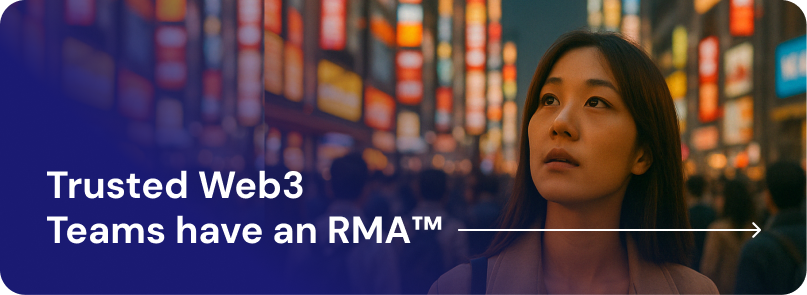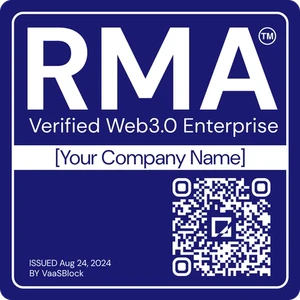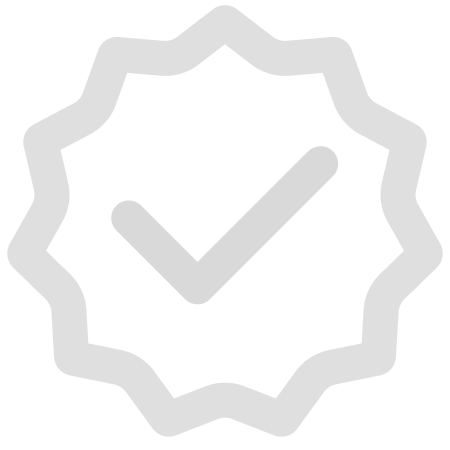
Harmony One
Risk Management
?Risk Management
The RMA™ is a blockchain credibility certification assessing governance, transparency, security, and results, providing trusted verification for businesses in Web3.
VaaSBlock has not audited this project and cannot vouch for this organization.
RMA™ Status: ❌ Unverified
Verification of 6 major compliance criteria.
Technology
?Technology
A collection of public facing information, data collected through partners and our own tools view we present a projects technology in one place for easy verification.
Analysis and testing of tech infrastructures.
Marketing
Alpha?Marketing
Top level look at a projects marketing capablities currently in alpha this section will grow to show quickly how a project promotes itself and the effectiveness.
Screening of user base and community feedback.
Background
?Background
Using multiple public facing sources across the web view a summary of a projects purpose, key achievements and general overview.
Collection of basic administrative documentation.
Risk Management
Last Updated
2025/4/16
Transparency
Transparency Score
Algorithmic assessment of a project’s transparency level, using multiple public data points to measure its commitment to compliance, documentation, and clarity in communication.
Transparency Score
Category Rank
A ranking that positions the organization among its industry peers, evaluating its relative performance based on key compliance, credibility, and transparency indicators.
Category Rank
Harmony One vs Layer-1
VaaSBlock Rank
A global ranking that compares the organization against all entities listed on VaaSBlock, reflecting its overall credibility, transparency, and operational performance versus the full Web3 ecosystem.
VaaSBlock Rank
Harmony One vs All Listed Organizations
Transparency
Transparency Score
Transparency Score
Algorithmic assessment of a project’s transparency level, using multiple public data points to measure its commitment to compliance, documentation, and clarity in communication.
Category Rank
Harmony One vs Layer-1
Category Rank
A ranking that positions the organization among its industry peers, evaluating its relative performance based on key compliance, credibility, and transparency indicators.
VaaSBlock Rank
Harmony One vs All Listed Organizations
VaaSBlock Rank
A global ranking that compares the organization against all entities listed on VaaSBlock, reflecting its overall credibility, transparency, and operational performance versus the full Web3 ecosystem.
RMA™
✘ UnverifiedCorporate Governance
The verification of fundamental governance, organizational structure, including verifying the entity’s legal registration and adherence to local laws and regulations.
Corporate
Governance

Team Proficency
Evaluation of an organization’s personnel, ensuring that crucial team members possess the expertise and dedication necessary to execute current business models and scale effectively.
Team
Proficiency

Technology & Security
Assessment of the organization’s technological framework, including blockchain integrations (where relevant), system architecture, and overall IT infrastructure.
Technology
& Security

Revenue Model
Comprehensively evaluation of a company’s income-generating strategies (how do they make or intend to make money), ensuring financial robustness and sustainability.
Revenue
Model

Results Delivered
The Results Delivered component of the RMA™ audit comprehensively evaluates an organization’s ability to achieve its goals and honor its commitments.
Results
Delivered

Planning & Transparency
The Planning and Transparency component of the RMA™ audit offers a thorough assessment of how an organization manages its workflow and prepares for unexpected challenges.
Planning &
Transparency

Technology
Marketing
Marketing Effectiveness
This score assesses the impact of detected marketing activity and the corresponding price movement of a token. The score understands whole market movements to ensure tokens are assessed fairly against peers.
Marketing Effectiveness
Confidence Index
This index determines our confidence in the score we have given. Generally, as more data is collected, the confidence index will increase. If a project has lots of activity, this confidence is earned faster.
Confidence Index
VaaSBlock Rank
This identifies where a project sits compared to all projects accessed for Marketing Effectiveness.
VaaSBlock Rank
Harmony One vs All Listed Organizations
Marketing Effectiveness
Marketing Effectiveness
This score assesses the impact of detected marketing activity and the corresponding price movement of a token. The score understands whole market movements to ensure tokens are assessed fairly against peers.
Confidence Index
Confidence Index
This index determines our confidence in the score we have given. Generally, as more data is collected, the confidence index will increase. If a project has lots of activity, this confidence is earned faster.
VaaSBlock Rank
Harmony One vs All Listed Organizations
VaaSBlock Rank
This identifies where a project sits compared to all projects accessed for Marketing Effectiveness.
No Chain No Gain™ Podcast ⛉
This Organization is yet to join the No Chain No Gain™ Podcast and share insights on what makes their business trustable and innovative.
💡 NCNG generated over 1 Million impressions in its first six months of existence.
PR Impact
PR Impact
VaaSBlock provides estimations to the impact that traditional digital media can have on a project. This is an early release; more areas of PR are planned in future versions.
Search Terms ? Search TermsThese are the terms we discovered the article for on page one of Google. | Est. Traffic ? Estimated TrafficWe estimate how much traffic an article will get. Generally, our estimations are slightly higher than those of more established tools. We are working on the algorithm all the time, and results could change. | Est. Value ? Estimated ValueBased on the estimated traffic we generate an estimation for what this traffic would have cost to generate if you tried to target these users with ads. The positions for the article on google and the location of the traffic are the major factors in this estimation. | |||
|---|---|---|---|---|---|
Harmonyoneplus User Guide.pdf source: Logitech | Harmonyoneplus User … — Harmonyoneplus User Guide.pdf source: Logitech | Organic | logitech.com | ||
Harmony source: Coingecko | Harmony… — Harmony source: Coingecko | Organic | coingecko.com | ||
Le Harmony, c’est quoi ? source: thebigwhale.io | Le Harmony, c’est qu… — Le Harmony, c’est quoi ? source: thebigwhale.io | Organic | thebigwhale.io | ||
Harmony source: Coinbase | Harmony… Seen 2022-02-23T19:00:00.000Z Harmony source: Coinbase | Organic | coinbase.com |
| Est. Traffic | Est. Value | ||
|---|---|---|---|
Harmonyoneplus User … — | |||
Harmony… — | |||
Le Harmony, c’est qu… — | |||
Harmony… Seen 2022-02-23T19:00:00.000Z |
Ratings
AlphaOverall
Aggregated Rating
The combined score with AI-driven weighted analysis to provide the best possible project rating.
5 verifications
Confidence Index
This index determines our confidence in the score we have given. Generally, as more data is collected, the confidence index will increase. If a project has lots of activity, this confidence is earned faster.
None
5 verifications
External Reviews
Third-party reviews are important for your reputation.We incorporate them into our Deep Due Diligence framework to provide a more comprehensive and transparent evaluation of each project. Collaborating with VaaSBlock ensures your reviews are not only acknowledged but actively contribute to building trust, improving your credibility, and maximizing the impact of your public reputation. Work with us now.
Background
Organization Name – Harmony One
Category – Layer-1
About
powered by irmaAI
irmaAIHarmony is a public blockchain platform launched in 2019 that delivers scalable, secure, and low-fee infrastructure using sharding and random-state Proof-of-Stake consensus. Founded in 2017 by Stephen… Tse, Rongjian Lan, Sahil Dewan, and Nick White—each with deep backgrounds at Google, Apple, and academic research—Harmony’s goal was to scale decentralized applications for billions with institutional-grade performance.
Its architecture partitions both nodes and blockchain state into four shards, currently supporting up to ~1,000 validators (250 per shard) and enabling up to ~2,000 transactions per second with ~2-second finality and fees roughly 1000× lower than Ethereum.
Harmony’s mainnet launched in June 2019 following testnets beginning in 2018 and early 2019, with staking opening to the public in May 2020—making it the first sharded blockchain to enable token staking and delegation.
ONE tokens were initially launched via Binance Launchpad (IEO) in May 2019 and migrated from ERC‑20 and BEP‑2 into native ONE when the Harmony chain went live.
ONE serves as the network’s utility token, used for transaction fees, staking, governance, and validator rewards; initial total supply capped at ~12.6B (now ~13.3–13.5B due to scheduled inflation of 441M/year), allocated among seed sales, team, protocol development, ecosystem, etc.
The staking and consensus mechanisms—randomness, slashing, and periodic resharding—are engineered to sustain security and decentralization while maximizing throughput.
Harmony has delivered sustained developer tools such as Ethereum-compatible programming environments, high-throughput DEXes, gaming, DeFi, and token bridges that support cross-chain interoperability (e.g. Ethereum‑Harmony bridge launched mid‑2020).
Strategic milestones include launching staking for public nodes in May 2020, developer ecosystem grants in mid‑2020, bridges to Bitcoin and Polkadot, and ecosystem expansion through 2021–2022.
Harmony continues to evolve via community governance (Harmony Improvement Proposals) and plans to scale to thousands of shards (targeting 1 million TPS), expanding node decentralization, interoperability, and enterprise-grade blockchain use cases for DeFi, marketplaces, games, AI data markets, and micropayments.
Backed by investors including Binance Labs and Consensus Capital with total funding around $18–28M, Harmony remains recognized for bringing sharding into mainstream deployment.
Despite competition in layer‑2 and monolithic scaling solutions, Harmony differentiates through architectural rigor, real node decentralization, energy-efficient consensus, low costs, and fast finality—making it developer- and performance‑focused infrastructure for mass crypto adoption. Read More
Creation Date
February 2026
Headquarters
Mountain View, California, USA
Organization Maturity Level
Growing Business
RMA™ Type
–
Useful Links
Website – harmony.one
Notable Achievements
2017
Founding team assembled
2019
Mainnet launch (June)
2020
Public staking begins (May)
2020
Ethereum token migration live
2021
Cross‑chain bridge & grants
- vaasblock.com /
- Layer-1 /
- Harmony One

















